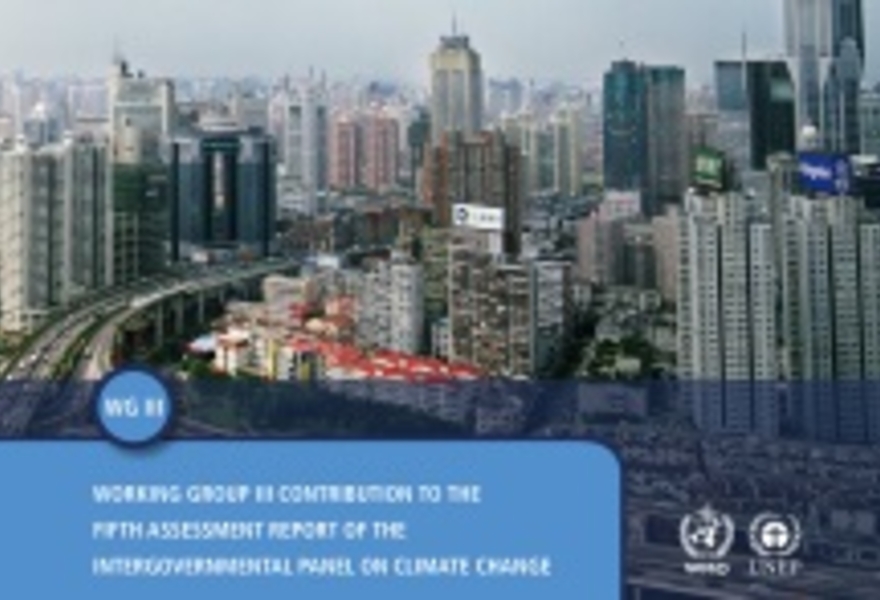Climate assessments need more policy-relevance
MCC director Edenhofer sees the IPCC at a crossroads: In "Science" he writes that in order to become more relevant it should explore costs, benefits and risks of politicial decisions on the national level, too.
More policy relevance and leaner: This is what a team of authors around the outgoing co-chair of Working Group III at the IPCC, Ottmar Edenhofer, would like to see in the much-needed reform of the IPCC. They advocate that the future IPCC should assume a greater role in presenting solutions to climate change mitigation and adaptation. Indeed, this is one way in which the political relevance of the IPCC could be enhanced following the climate summit in Paris.
In the article “The IPCC at a Crossroads: Opportunities for Reform,” the authors call on the IPCC to engage in a fundamental reform. Now published in Science, the article was written by Ottmar Edenhofer, Director of the Mercator Research Institute on Global Commons and Climate Change (MCC); MCC working group leader Governance Christian Flachsland; Carlo Carraro (Fondazione Eni Enrico Mattei); Charles Kolstad (Stanford University); and Robert Stavins and Robert Stowe (both Harvard University). “To remain policy-relevant, the IPCC needs to shift focus and increasingly address response options to climate change,” they write. Moreover, “Focusing the initial scoping process on identifying policy-maker questions that the Assessment Report will respond to (rather than unspecified broad topics) could increase its relevance and usefulness.”
The authors advocate that the Panel respond with shorter and more targeted reports to the expressed needs of politics. The costs, benefits and risks of political decisions should be more clearly analyzed and evaluated, as well as the success of climate policies. For this, it is necessary, they argue, to explore adaptation and mitigation measures at the international, national and city levels. However, such reports, although more relevant for decision-makers, “could be difficult for governments to accept” since governments may fear that they could weaken their respective positions in international negotiations. “All the while, a realistic diagnosis is in the best interest of decision-makers, as is the knowledge of the possible solutions”, says Edenhofer.
The IPCC is currently at a crossroads: From politics and from environmental organizations, the demands for a greater policy relevance and flexibility of the IPCC are becoming increasingly loud. The Panel should be able to offer answers to specific questions regarding policy options more quickly. Yet, just this spring the IPCC had decided to continue submitting its Assessment Reports only once every five to seven years. Only special topics are to be processed at shorter intervals. From October 5 to 8, the IPCC will meet in Dubrovnik, this time to elect, by secret ballot, its new president and the co-chairs of the three working groups. The new management team will then address reform proposals for the IPCC.
In the Science article, the authors emphasize the key function of the IPCC as an interface between climate science and politics. Yet there is room for improvement in the way in which the Panel informs policy of the various paths toward climate change adaptation and mitigation, be it at the regional, national or state levels. The article also says that “IPCC reports could also develop better understanding and assessment of climate impacts, drivers of greenhouse gas emissions, and policy options at subglobal levels.”
Edenhofer, who is also Chief Economist at the Potsdam Institute for Climate Impact Research (PIK), and his colleagues point out that the reason why the world climate reports to date commanded such a high degree of authority is largely due to the fact that in their respective Summary for Policymakers every single word had to be accepted by all national governments. However, while such a consensus is of great value in particular with a view to international climate policy, it could also lead to a “dilution of the key messages”. The authors of the article propose increasing the importance of the technical summaries, which have so far been written solely by scientists. “Renaming them ‘executive summaries’ and engaging expert communicators could make them more accessible to policy-makers and the public.”
The authors also criticize the considerable time and travel expenses incurred at the last meetings of the Intergovernmental Panel on Climate. They write: “At the least, the IPCC should consider reducing the number and length of lead author meetings and making greater use of remote collaboration.”






